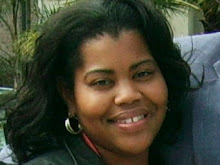
So for about 6 months I waited with extreme enthusiasm for the CNN Special led by Soledad O'Brien, "Black In America". The network began advertising the special at the beginning of 2008, leading up to the date, and the soundbite and clips looked very interesting, "Pain, Pride, Struggle, and Success: what it Means to be black in America." The first part, titled "The Black Woman & Family" aired lastnight, with the second part, "The Black Man" beginning in about 20 minutes.
Alas! I was SOOOOOOO very disappointed. Did I say I was disappointed? I was SO VERY disappointed. It was not at all what I expected. I expected Soledad to uncover the stereotypes, myths, and distortions that are made about black people in America. Instead, the report seemed to fan them! Believe me, I know the state of Black America is not where it seems it ought to be, but the depictions of poverty, underachieving school children is the exception not the norm. Julianne Malveaux, president of Bennett College said it best, most black people are NOT poor. One-third, or 33% of black people live in poverty--the rest of the 66% do not. And yet, the image that rises to the forefront of poverty to many is a black American. The fact is most of the poor in America are whites. They make up about 60% of the poverty-stricken. It happens that 13% of the U.S. are black people, so with poverty rates at 1/3 in this demographic, that's a pretty BIG proportion.
Anyway, I have to go set my VCR to tape the rest of the special that I had planned to show in my SOC classes. But now, I'm not so sure this piece will be useful to my students--who may already carry erroneous pre-conceived notions about blacks. I'm afraid this will add fuel to the fire.

1 comment:
It is interesting that you say that. I am from the midwest - and never (while I was groing up) was poor America equal to being black in America. In the midwest (I am not talking about cities, but in the rural parts) the poor farmer who couldn't make a enough to pay off his crop loans or livestock was poor America. It made me start to ponder if the line drawn from being "black" to being "poor" is regional or by population. Although, there is a huge part of me that agrees with the statement of "the media tells you what they want you to think."
Post a Comment